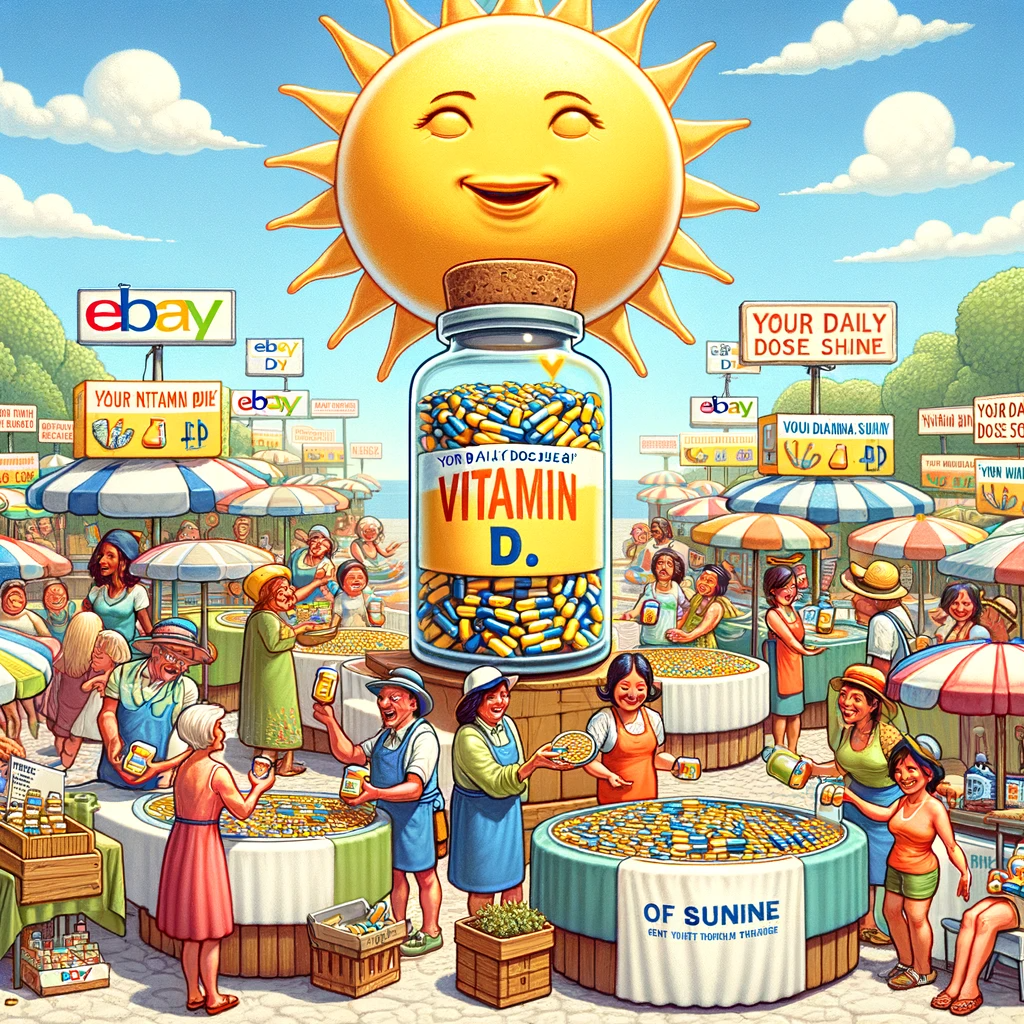Vitamin D3
Vitamin D3, also known as cholecalciferol, is the other main form of vitamin D, and it is synthesized by the skin when exposed to sunlight. It is also found in certain foods, particularly fatty fish, liver oils, and egg yolks, and is often more effective at raising Vitamin Dlevels in the blood compared to vitamin D2. Vitamin D3 contributes to bone health, immune function, and inflammation reduction.

Great Deals And Selection On Amazon!
Like Vitamin D2, Vitamin D3 is crucial for calcium absorption in the gut, which is essential for maintaining healthy bones and teeth. A deficiency can lead to conditions such as osteoporosis and rickets in children. It also plays a role in immune system function and has been studied for its potential role in preventing chronic diseases, including coronary artery disease, and some forms of cancer.
Ensuring adequate levels of Vitamin D3 can be achieved through sensible sun exposure, consuming fortified foods, and taking supplements if necessary. Given the limited number of natural food sources of Vitamin D3, and the risk of skin cancer from prolonged sun exposure, supplementation might be necessary for some individuals, particularly those living in northern latitudes or who have limited sun exposure.
Vitamin D3 is beneficial in preventing and managing osteoporosis and rickets due to its role in calcium absorption. Its mood-regulating properties can be helpful in managing depression. There is also ongoing research into the potential benefits of Vitamin D3 in reducing the risk of various diseases, including prostate cancer, although conclusive evidence is still being developed.

A Great Economical Source For Vitamin D3 is Ebay – Shop Now!
Please note that while both Vitamin D2 and Vitamin D3 can help maintain healthy Vitamin D levels, D3 is generally more effective at raising and maintaining these levels. It is also essential for individuals to speak with a healthcare professional before starting any new supplementation to ensure it is appropriate based on individual health needs and conditions.
Citations:
- Chiril Voloc et al., “Vitamin D2 versus vitamin D3 as a risk factor in compromised bone health,” Moldovan Medical Journal, 2022.
- K. Sawicki, W. Skawiński, “Vitamin D3 – a fundamental component of human health and a potential supplement for COVID-19 prevention and therapy,” Monz, 2021.
- Anjan Bera et al., “Prevalence of serum suboptimal vitamin D3 levels and its correlation with treatment outcome, sociodemographic profile among cancer patients: A retrospective analysis,” AJPCR, 2022.


